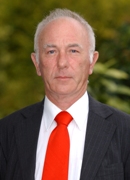How do you describe your job when you meet people at a party?
A consultant on agriculture and food research
What is ‘cutting-edge’ about your work?
Nothing much now but I did play a useful role in developing novel means of estimating extreme intakes of food and food contaminants
What are the biggest implications your work will/could have in the future?
Nothing now but my work had a direct impact on improving consumer protection
Describe some of the highlights of your average day.
Bearing in mind I am retired a round of golf is one of the highlights of my day. Although I do enjoy the occasional visit to a research institute
Describe briefly how your career has progressed to date.
My initial career was directed to studying the corrosion of tin, tin alloys and tinplate. I then joined MAFF and provided scientific advice on food solvents, artificial sweeteners, metallic packaging materials, then went on to provide advice on heavy metals in food, develop methodology for estimating extreme intakes, was secretary to the United Kingdom Steering Group on Food Surveillance, secretary to the Working Party on Heavy metals in Food, worked for about 15 months on radioactivity in food post-Chernobyl, provided advice and acted on behalf of the minister on the Advisory Committee on pesticides, was part of the Secretariat of various health committees, was MAFF assessor to the Food Advisory Committee, made an input to various BBSRC committees, provided advice to committees in Northern Ireland and Scotland, was an assessor for postgraduate studentships in Northern Ireland, managed a large division of food scientists, and then another division of scientists in their turn managed agri-food research, and finally was responsible for the Defra research quality assurance program. Following night I spent 4 years providing research consultancy services.
How well is your job compensated? What is the starting salary for your field, and how much can this be expected to rise?
The information that I could provide would be out of date. However I got on by being prepared to change disciplines whilst relying on my sound science education and, in particular, developing interpersonal skills
How do you see your field developing over the next 5-10 years?
As climate change begins to bite I expect to see a resurgence of interest in food production research, indeed I think it is inevitable given the fragility of the world food supply
What’s the most unexpected thing about your job?
I surprised myself by being so adaptable and the enjoyment I got from meeting practical scientists
What’s the biggest achievement of your career so far?
Getting changes to the tin and lead in food regulations, and helping to develop a live monitoring test for radioactivity in sheep following Chernobyl

